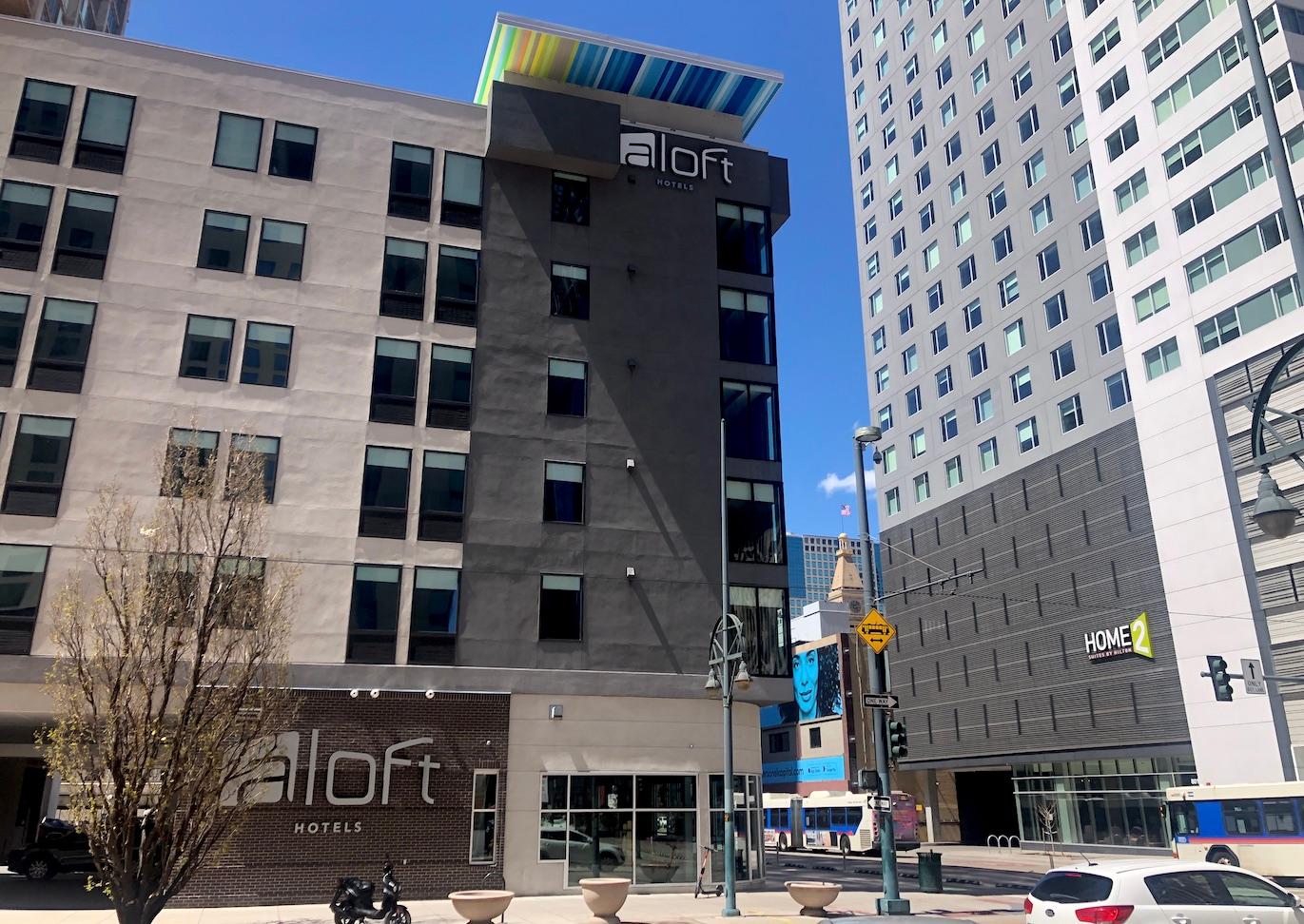City Council voted Monday to renew the city's contract with Aloft Denver Downtown hotel, which has offered long-term shelter for 140 people experiencing homelessness who are particularly vulnerable to COVID-19.
The contract with the hotel, located near the Colorado Convention Center and the Denver Center for the Performing Arts, was first signed toward the beginning of the pandemic. The goal was to ensure people at high-risk of contracting COVID-19 in group shelters could stay somewhere with a door to close.
Aloft is one of four hotels in the city that the Department of Housing Stability has used to provide housing for that vulnerable population.
The decision to renew the contract has been on City Council's plate for nearly a month.
After weeks of delays, the vote in City Council was part of a block vote, during which council members vote on multiple proposals at once. No council member called the contract question out on Monday for special discussion, allowing it to pass without further debate.
Councilmember Debbie Ortega initially had questions about how the city would get out of the contract, but she did not raise the issue again Monday. During the original debate two weeks ago, Councilmember Robin Kniech pointed out that the emergency shelter was still needed, as COVID-19 rates have climbed.
The vote was scheduled to happen June 13, but many members of City Council were on a trip to Mexico City with the Downtown Denver Partnership and were not available. While the contract was set to expire at the end of June, the city was confident the delay would not cause Aloft to cut off renewal conversations.
Not everybody wants unhoused people to have temporary housing in downtown hotels.
In May, residents from the Upper Downtown Neighborhood Association and the nearby luxury building, Spire Condos, raised concerns to City Council about Denver's contract with the hotel. They argued residents were doing drugs in the streets and alleys and committing other crimes.
Some are registered sex offenders, and Upper Downtown Neighborhood Association head Rob Squire said he was worried one of those people could recommit.
"Clearly, low-barrier crisis housing is a necessary part of the HOST Program, and the FEMA pandemic dollars may have been useful to help protect people at high risk of dying from COVID," physician and UpDoNa member Sue Townsend told Council. "However, I do not support renewing the lease at the Aloft hotel, to continue to provide these crisis services. With the combination of mental health issues, trash, violent crime and drug use that the neighborhood is experiencing as a result of this ongoing temporary plan, renewing its lease seems unwise and problematic."
The neighborhood association, which is in the process of picking homelessness advocacy groups to support and has been involved in policy on the issue, said Upper Downtown is not the right site for a shelter.
Yet Downtown Denver, which permits multi-family zoning, is one of the few parts of the city where homeless shelters are legally permitted. And residents of Aloft say the shelter is saving lives.
Aloft resident and longtime housing activist Randle Loeb, who showed up to Council to protest the urban camping ban and instead found himself defending the shelter where he was living, cautioned lawmakers that many residents would be living on the streets if Aloft was not there.
"If it was not for this program, people like me who are 71-plus would not be alive. I want to make it clear that people with disabilities who are unable to basically work have a simple right to have a place that is safe to live," he told Council.
"We are members of the community of Downtown Denver," he continued. "We are members of this community as a whole. We actually have a vested interest in the care and welfare of this community... When you basically push people out of the city because of economic reasons, you are condemning the quality of life of all of us."
Doug Schafer, another Aloft resident, lives with a blood disorder and was facing a cancer diagnosis and a list of medical procedures that will keeping him in the hospital for weeks. In early June, he was relieved to find that Aloft would hold his room while he was being treated -- assuming Council voted to continue the contract.
"Boy do I need it!" he wrote to Denverite at the time. "That was such welcome news!! Because after this initial salvo of a likely treatment regimen there's more to follow. Both in and outpatient. By summer's end I should be moving out and into PERMANENT govt subsidized housing - courtesy of DHA. It'll be at Thomas Bean Towers."
Aloft has helped people secure long-term housing?
At least 343 people have moved into permanent housing after staying at one of the city's four hotels-turned-shelters. Of that group, 70 people were from Aloft.
Schafer was excited to be another.
"I'm about to be a 'getting housed' success story," he wrote. "But this health issue is throwing me a big curve ball. What would I do without Aloft to come back to?"











